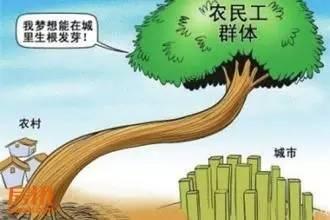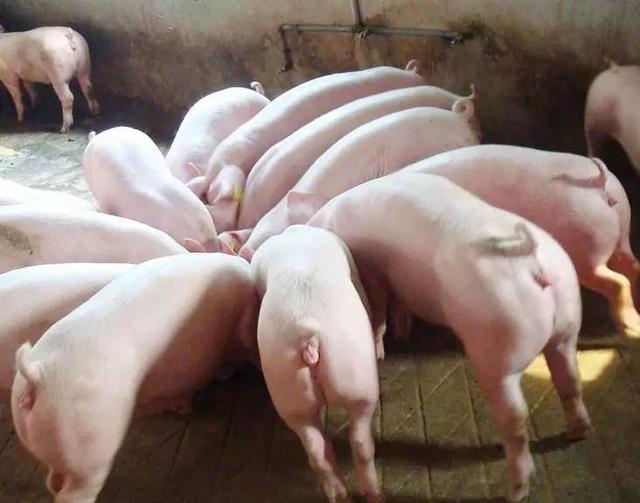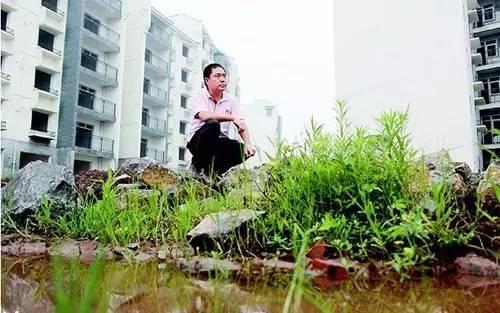The top ten policies to ensure that farmers go to the city, house prices are really going to rise this time?
Recently, the State Council issued the Circular on the implementation of several Financial policies to support the citizenization of the Agricultural transfer population, which put forward ten specific policies and measures to solve the various worries of farmers going to cities to buy houses. As soon as the news came out, the real estate market boiled again. Are house prices going up?
Ten policies allow farmers to enter the city without worries.
The bottleneck of the citizenization of agricultural migrant population in recent years is that its proportion of settling in cities and becoming citizens is not high. At the same time, those migrant population who go to cities as migrant workers are also lack of institutional acceptance.

Many previous news have reported that, for example, when the children of the migrant population go to school in rural areas, the vast majority of migrant children can only go to some unqualified 'black kindergartens', and then wait until they have to go to primary school and then have to return to their place of origin. this happens because there is no relevant financial arrangements, then the school needs of these people cannot be solved, and these people cannot stay in the city without a solution.
In addition, there are basic security parts such as medical treatment and medical treatment, which are closely related to the people's livelihood. If these problems cannot be solved, the rural migrant population cannot be treated equally in the cities and cannot take root here with peace of mind.
Recently, the introduction of ten policies has given solutions to these problems from a deep level. The Circular puts forward a total of 10 specific policies and measures, including education for the children of the agricultural transfer population, medical care, training for the unemployed, and the provision of basic public services to people with residence permits.
The "notice" not only clearly defines the problems such as going to school, medical and social security for farmers' children after entering the city, and puts forward solutions, but also gives clear provisions on employment support. After all, only when you have a job can you have a home, so that farmers in cities can have stable employment and obtain relevant training to secure employment.
Relevant experts believe that if a farmer entering a small city cannot secure employment, he will certainly not dare to make a major decision to settle in the city. To solve this problem, on the one hand, we need local economic development, through industrial transfer or attracting investment, the local industry can be developed.
On the other hand, to allow more farmers to enter the city, if the population size of the city grows, then the development needs of local service industries and local industries will also arise, so that farmers can find a stable job in the city. to form a relatively favorable condition, we can form a virtuous circle.
The land right will not be deprived and the peasants will be allowed to go to the city.
In the past, many farmers dared not go to the city and did not want to go to the city. Apart from the fact that many public services in the city were not provided to the farmers, the biggest worry after entering the city was whether they would be forced to take away the farmers' original rights after they were changed to an urban hukou.
A few years ago, a national research report pointed out that 84% of farmers wanted to retain their contracted land after settling in cities, while 67% of migrant workers wanted to keep their homestead. It can be seen that the original land rights will not be deprived, which is the basis for moving more farmers to cities and safeguarding their rights.
This document has really given "reassurance" to the citizenization of farmers. The notice makes it clear that "to safeguard the land contract rights of farmers settled in cities, the right to the use of homestead, the right to distribute collective income, and so on." This means that after farmers go to cities to become citizens, their original property rights remain unchanged, which stabilizes the hearts of the people.
Relevant experts believe that, "there are many reasons why many farmers dare not go to the city and do not want to go to the city. One is that many public services in the city are not provided to him, and one of his biggest worries is that after changing to an urban hukou, will he be forced to take away those rights?" Now the documents of the State Council have clearly told us not to accept them and to safeguard their rights. There is no doubt that there will be more security and peace of mind for farmers to go to the cities. "
How big is the housing demand market behind it?
As far as the real estate market is concerned, housing is the primary demand for the citizenization of farmers. After all, only by settling down can one set up a career. How big is the market for housing demand for farmers to become citizens?
According to the China Housing Development report 2015-2016, based on the urbanization of 100m people in the next five years, if 70 per cent of households buy houses in cities and towns (33.3 square meters per capita), the demand for houses dominated by migrant workers will reach 460 million square meters a year, with a total of 2.33 billion square meters in the next five years. It can be seen that there is indeed a great demand for housing for farmers' citizenization.
However, the realization of citizenization of farmers going to cities to buy houses cannot be solved by a single policy, and a number of supporting policies are needed to further land on the ground, so that the rights and interests of farmers and their livelihood after entering the city can be fully protected.
Migrant workers may become the main force to buy houses in the future.
Zhang Xin, a field organization, believes that there are two main advantages for the introduction of the ten latest policies of the State Council.
At the national economic level, compared with other developed countries, China's current urbanization rate of about 50% still has about 20% room to rise, and once it can promote these 20% of the rural population to settle in cities and bid farewell to self-sufficiency, taking root in cities, employment, consumption, and entering the secondary and tertiary industries will give great benefits and impetus to the national economy.
In addition, for the real estate industry, in the context of destocking, how to promote farmers to buy houses in cities has become the ultimate goal. The latest policy issued this time has given clear protection to the issues of employment and income, social security for the aged, medical education and other supporting issues that farmers are most concerned about, as well as the issue of land rights.
Once these resistance is lifted, it is believed that a large number of farmers will be willing to go to the city to buy houses in the future, but whether they can afford it will become one of the thresholds. Under such comprehensive factors, some rural hukou personnel who have gone to work in cities and have income-based may become the target group that the property market needs to digest in the next few years.
Shen Guangming, chairman of Chongqing Youdimei Marketing Agency, believes that it will be positive to some extent, but it will not be a big irritant point. He said that, in fact, it is not uncommon for rural registered residents who have the ability and strength to buy houses in cities. At present, some properties in Chongqing are for sale, and the number of buyers with a rural hukou can even reach 30%.
(the pictures in this article are all from the Internet. If there is any copyright, please contact us.)
- Prev

Market | Pig market is good in the second half of 2016, farmers will make money
Market | Pig market is good in the second half of 2016, farmers will make money
- Next

According to the latest news from the State Council, China's 700 million people are likely to get rich overnight.
According to the latest news from the State Council, China's 700 million people are likely to get rich overnight.
Related
- A course of planting techniques and methods on how to grow carrots
- How to plant the latest tulips?
- Is it better to pick tea in the morning or in the afternoon? When is the best time for tea to be picked? what is the third or fifth tea?
- Launch Yuanxiao Happy combination Haocha + Tea Yuan healthy Taste
- Penghu Tourism "Fireworks 20 Parade with You"
- 2022 West Lake Happiness holds "Digital Revitalization Voucher" and draws iphone13 and laptop.
- Banqiao Fuzhou social houses are designed to change start-up combined with police elimination to create a safe and livable environment
- The convenient measure of "mechanical weeding" in Xinbei has been abused and the Agriculture Bureau has imposed heavy penalties on the illegal land consolidation.
- Changgeng University Joins Hands with Four Memory Factories to Rescue Memory Talent Shortage
- The list of Taiwan's top 100 MVP managers is listed by the Director-General of the Farmers' Association of Sanxia District.

